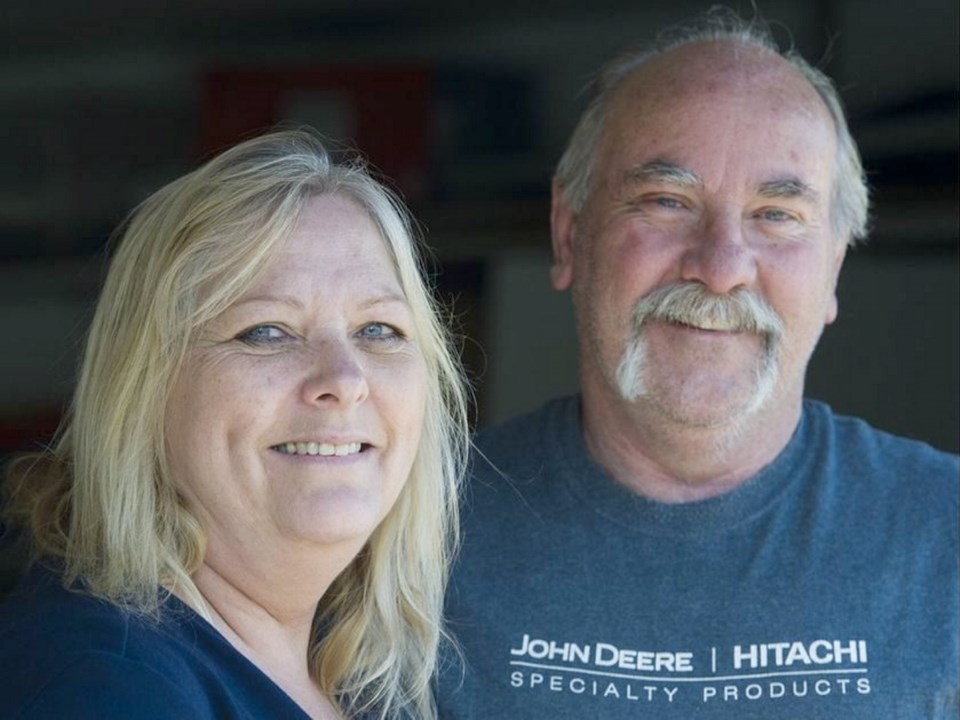Bonnie Zentner, who has covered part of the roof of her Surrey house with solar panels to reduce her electricity bill, is throwing shade at B.C. Hydro’s plan to scale back surplus payments to some excess power producers.
“That is just so wrong,” said Zentner, of the proposed change to the “net metering” program that would reduce payments to homeowners or businesses with their own power generators who create a lot more power than they use.
“If you don’t pay a credit for something that the customer created, then it’s like you’re stealing it,” said Zentner. “It’s like drilling a hole in my gas tank and helping yourself to my gas.”
But B.C. Hydro said the change is necessary because a small percentage of the net metering customers are pocketing as much as $60,000 a year in cashback for unused electricity, which it said isn’t the program’s intent. B.C. Hydro spokeswoman Tanya Fish said the company has gone to the B.C. Utilities Commission to amend the program so that it’s not available to people who install their own power production units when the production is far greater than what that household normally uses.
Existing participants in the program will not be affected and those producing a small amount of excess power will still get a credit.
Customers since 2004 can carry over electricity they generated, but didn’t consume to months when they need it. At the end of each year, B.C. Hydro would pay the customers for the excess, at almost 10 cents a kilowatt hour (kWh).
Zentner — who spent $1,000 per panel for the 18 panels she had installed last fall and has already seen a $144 reduction in her bill for the last two-month billing period compared with last year — said B.C. Hydro didn’t pay for or subsidize installation and shouldn’t get any extra energy for free.
“It’s my renewable energy because I created it,” she said. “It would be different if they paid for the solar panels. To me, that’s stealing from me, because it’s mine.”
She said the new rules force customers to donate excess electricity to B.C. Hydro, who can then sell it to other customers and profit by it.
“It’s not like I can divert it somewhere to store it,” she said.
She and other existing customers are exempt, and will continue to receive rebates, but Zentner said she still opposes cutting rebates for others because it removes an incentive for people to adopt green energy.
She said she was going to encourage her mother to install panels on her house but “I’m not sure I will now.”
Zentner doesn’t expect to generate more power than she uses, but hopes to trim her electricity costs by $1,000 a year, which over the years will pay down the installation cost and reduce her environmental footprint.
She said she’s not opposed to some customers creating power to make money.
“Why can’t somebody be able to profit from this, why is it just B.C. Hydro that can profit?”
Fish said the company had recently seen an increase in the number of net-metering applications from run-of-creek hydroelectric projects — some producing 40 to 50 times the electricity needed for their homes.
“Large generation size for a residential customer results in significant annual surplus payments of approximately $40,000 to $60,000,” Fish said. “It’s significant enough for us to want to put an end to it.”
Last year, 230 customers out of the program’s 1,330 members were paid for their surplus power.
Of those, six were paid a total of $220,000, between $10,000 and $60,000 each by running small run-of-creek hydroelectric projects, she said.
Net metering “was never intended to facilitate excess generation on a consistent basis,” said Fish.
The average home uses 11,000 of kWh of power a year. A typical solar power setup has 16 panels on a residential roof to create 4,400 kWh of electricity a year.
Homeowners who install solar power are aiming for a net zero electricity bill but are restricted by the amount of roof space for panels, said Scott Fleenor, of Terratek, a Vancouver-based company that installs solar panels.
But he’s heard of surpluses and “my mouth didn’t drop open when I saw the email” from B.C. Hydro announcing the change, he said.
“It’s not a good thing for our business, but I understand [what it’s doing] and I agree with that,” said Fleenor. “It’s not [for householders] to make money off of it.”



